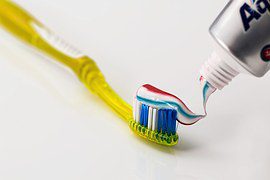Common Reasons Of Tooth Sensitivity

Tooth sensitivity is a frequent problem for many adults. It causes a short-term, intense pain causes discomfort and affects a person’s daily routine. Tooth sensitivity indicates a presence of other problems, including tooth cracks and emerging cavities. Before you go to the dentist, these are the most common causes of tooth sensitivity.
1. Tooth Whitening Treatments
Regardless of where the tooth whitening procedure is done, whether at the dental office or home, it ends in temporary sensitivity of the tooth. After undergoing a whitening treatment, you should avoid discomfort by considering using gentle toothpaste and a soft brush.
You should also avoid hot and cold products for some time as they tend to worsen the sensitivity. The discomfort gradually disappears in a span of a few days resulting in healthy teeth.
2. Tooth Grinding
It has a negative impact on the enamel of the tooth. Frequent grinding weakens the enamel because of the applied pressure during the process. It also leaves the dentin exposed; which are the hollow tubes found in the middle layer of the tooth.
3. Excessive Brushing Or Mouth Wash
It results in the exposure of nerves due to the breakdown of the protective layer of the tooth. When the tubules become exposed to hot, cold, sticky and acidic foods; there is an increase in tooth sensitivity. Discomfort is avoided by using a toothbrush having ultra-soft bristles.
4. Inappropriate Toothpaste
Always pick mild toothpaste with low teeth whitening agents. Avoid freebie toothpaste as they are often hard. If you experience tooth sensitivity due to the wrong choice of toothpaste, replace it with one that is recommended for sensitive teeth.
5. Acidic Foods
These foods increase sensitivity and may increase the pain to unbearable levels if the tooth roots are exposed. Avoid foods such as grapefruits, kiwi, pickles, lemon and tomato sauce.
6. Gum Disease
Receding gums or any gingivitis usually leave the upper tooth exposed, causing pain when eating sweet, cold or hot food. On noticing a problem with your gums, you should seek an appointment with a dentist.
7. Dental Procedure
 Some treatments such as tooth extraction or root canal may result in temporary tooth sensitivity. Should the discomfort last more than a few days, seek the dentist and get appropriate treatment.
Some treatments such as tooth extraction or root canal may result in temporary tooth sensitivity. Should the discomfort last more than a few days, seek the dentist and get appropriate treatment.
8. Plaque
Regular cleaning of teeth by the dentist and daily tooth brushing prevents the build-up of plaque. The routine should be followed strictly, and the lack of it causes plaque build-up which affects the enamel leading to tooth sensitivity and ultimately to cavities and tooth decay.
Those are the common causes of tooth sensitivity; it is essential to manage it in the initial stages to avoid bigger dental problems.
